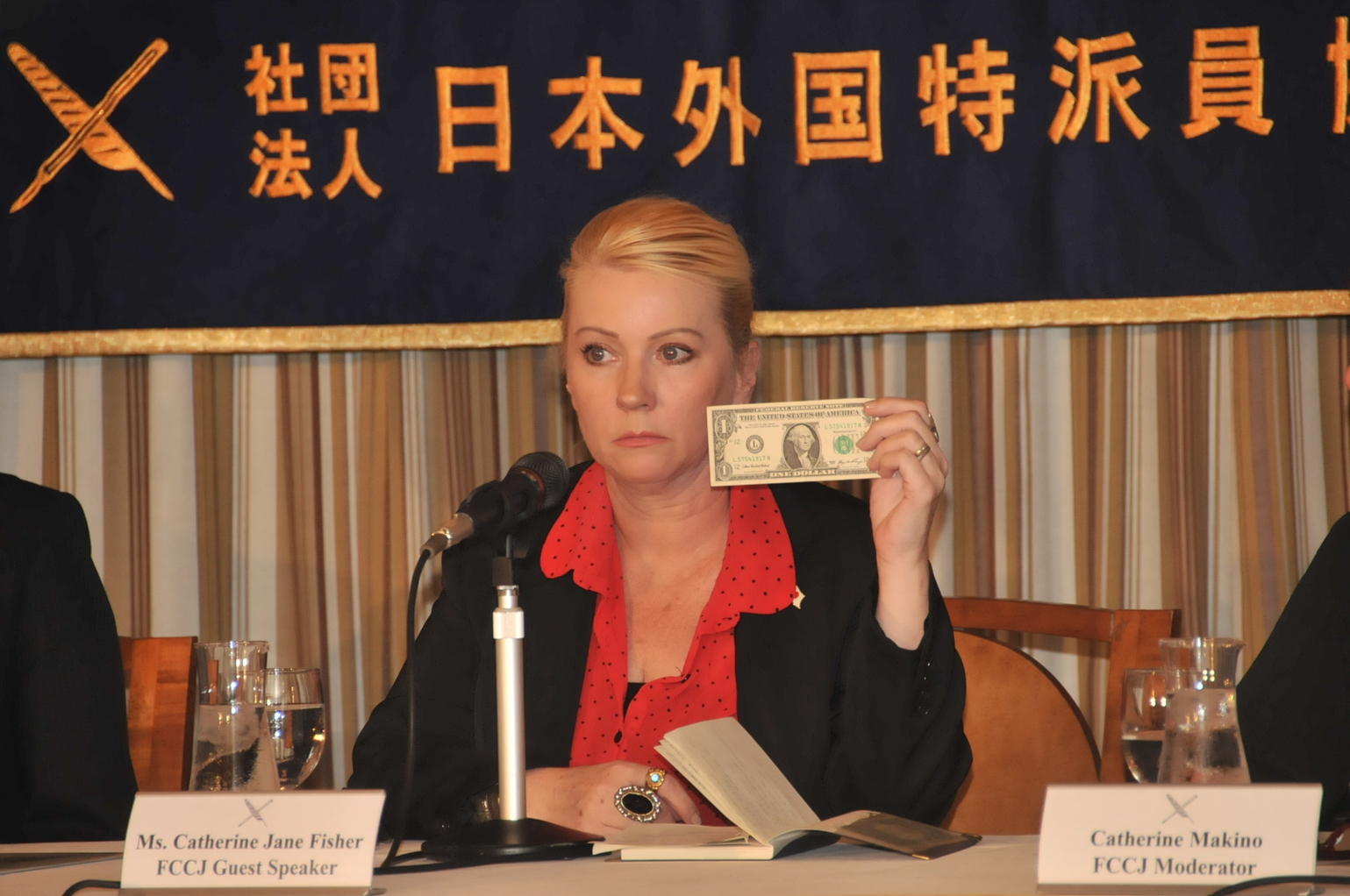For starters, the country’s sex crime laws have not been updated since 1907 and don’t sufficiently support those who are assaulted, but there’s also a culture of victim blaming. Change is on the horizon, but will it be enough to encourage people to speak out?
For the first time in more than a century the Japanese government is planning to significantly amend the country’s archaic sex laws. The hope is that the legislation will be passed before the end of the Diet session on June 18, 2017, though with the attention now focused on the anti-conspiracy bill, it may be postponed until September.
The proposed revisions, which have been approved by the Cabinet, include plans to raise the minimum sentence for rapists from three to five years as well as the removal of a provision that requires victims of sexual crimes to press charges in order to prosecute. The definition of rape will be expanded to include oral and anal sex, while a new penalty will also be established for parents or guardians who sexually abuse children under the age of 18.
The prospective overhaul of the penal code is a boost for victims and support groups who believe the current laws are too lenient towards sex offenders. As things stand the minimum sentence for rape is less than that for robbery. Many perpetrators aren’t taken to court as victims are often too afraid or ashamed to pursue charges. Men aren’t considered potential victims as the definition of rape only covers vaginal intercourse. Also, in the eyes of the law, unless there’s some form of violence or intimidation it can’t be viewed as rape.
As things stand the minimum sentence for rape is less than that for robbery
“These laws were established in 1907 and are obviously outdated,” says Sachiko Osawa, co-founder of Chabudai-Gaeshi Joshi Action, a grassroots organization aimed at empowering Japanese females. “Back then women were effectively the property of households without any rights. The minor changes since haven’t made a serious difference so former justice minister Midori Matsushima pushed the Diet to act.
“The modifications are a step in the right direction, but they don’t go far enough. Parents and guardians who take advantage of children are included in the legislation, but not people in power such as teachers, bosses or relatives. In countries like America and Britain rape is defined as a sexual act without consent; a word that doesn’t exist in Japanese law. The new code doesn’t take into account people who are scared or unable to resist.”
Mens rea (Latin for “a guilty mind”) is extremely difficult to prove so the chances of securing a rape conviction without evidence of violence or intimidation is small. False accusations, though rare, can destroy lives so authorities are cautious when it comes to sexual assault, particularly in Japan. Osawa feels this attitude can deter accusers from pursuing cases.
“Victims are asked by officers whether they’re really sure about going through with the claim, why they were at the location as well as questions about clothing,” Osawa says. “It leads to victim-blaming and self-doubt. The media’s no different. With [actor] Yuta Takahata’s case, which was settled out of court, newspapers focused heavily on the lady’s attire which was irrelevant.”
Concerned about how they’ll be viewed, many victims fail to report sexual crimes, particularly when they know the offender.
“Contrary to popular belief, research shows that in more than 70 percent of cases the victim is familiar with the attacker,” says Osawa’s colleague Moe Suzuki. “Often there’s no violence so people think it’s acceptable. Around ten years ago a middle-aged golf instructor told his teenage student she needed to have sex with him to improve. He was found not guilty. One 24-year-old man pretending to be 18 raped a 14-year-old, but was let off because she didn’t resist when he opened her legs. Whether it’s judges or the police, there’s simply no understanding of the word consent in this country. TV shows and films don’t help. Girls are portrayed as passive and those that resist are viewed as playing hard to get.”

Catherine Jane Fisher
The Rape of Catherine Jane Fisher
Osawa and Suzuki believe it’s important, not only to change the laws in this country, but also the cultural mindset on sexual assault by educating children, police officers, judges and politicians. This is a drum that Australian mother of three Catherine Jane Fisher has been banging for more than 15 years. In 2002, she was drugged and then raped in the back of a van by former US sailor Bloke Deans at a parking lot near Yokosuka Naval Base. The attack was just the start of her ordeal.
“I thought the procedure would be to report the crime and then be escorted to the hospital,” Fisher tells Weekender. “I was wrong. After 12 hours of questioning they said we’d have to return to the scene of the crime to save evidence. They didn’t understand that the evidence was on my body! Forensic samples were needed, not pictures of the location. I had to re-enact the assault with officers stood around laughing. It was horrific. I was finally allowed to go to hospital the next morning and they didn’t even have rape kits.”
“I had to re-enact the assault with officers stood around laughing. It was horrific”
Unsure of where to turn, Fisher called a rape crisis center, but only got through to an answer machine as telephone counselling services were only open a few hours a week. The case was then dismissed by Japanese courts and Deans was given an honorable discharge by the US military.
“It was like I was facing niten ichi-ryu (two swords at once),” Fisher says. “First the rapist struck; then the police, whom I expected to take the initial sword out, put another one in. You look to society and the courts for help and it feels like you’re being stabbed again. I’m walking around with these invisible swords waiting for someone to release the pain. Finally, I realized the only solution was to rip them out myself.”
Battered but not beaten, Fisher went to the civil court and won, but received no compensation. Deans had been ordered to pay ¥3 million; however, as the US navy had given him permission to leave the country, the ruling couldn’t be enforced. Fisher then spent almost a decade pursuing Deans, eventually tracking him down in a prison in Milwaukee, Wisconsin. With the Japanese government refusing to help she turned to Perkins Coie law firm who took on her case pro bono.
“We did it; the original ruling from the civil case was upheld,” she says. “It was the first time a foreign judgement for rape had been recognized and enforced in an American court. It was about more than the money, so I decided to settle for $1 because I believe in the power of one. A single voice can make a difference.”
“This was for all those women and men who suffer in silence. It was for the 70-year-old lady in Okinawa who told me she was raped half a century ago by an American serviceman, but kept quiet. We’ll never know how many victims held their torment in over the past 70 years. In Article 16 of the States and Forces agreement it says US military men and their counterparts have to respect the laws of Japan. If the government is as adamant, as it claims to be, about eradicating sexual crimes, it must change the word respect to obey.”
Since 2002 Fisher has been on a personal crusade to raise awareness of sexual assault in this country. The first individual to speak publicly about being raped in Japan, she’s a regular speaker at rallies and recently launched the “I am Jane” crisis center to support and empower victims afraid to speak out.
“I’ve lobbied the government, achieving limited progress with funding, but the most important factor is we’ve given hope to victims who’ve contacted us,” she says. “A few rape centers have popped up, but many people aren’t satisfied. Some hospitals have rape kits, though one wonders whether the police are using them. Crimes go unreported and rapists continue to escape justice. I had to pursue my attacker because the laws of this land didn’t protect me. Even with the revisions I don’t believe much will change. To make a real difference we must treat victims with dignity and give them a voice. Silence is the friend of predators, so to break the cycle of violence we need to break the silence.”








